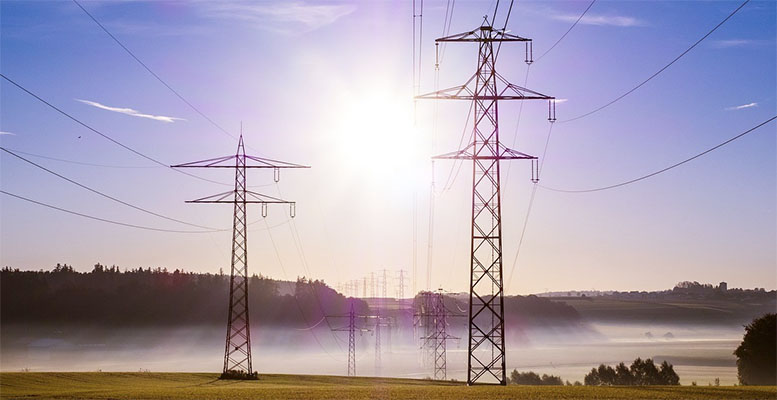The price of electricity in Spain once again broke through the historical maximum yesterday and exceedeed 150 euros for the first time in history. Behind these soaring prices are the high costs of natural gas and CO2 emission rights. Gas is used in combined cycle plants, the most expensive power stations, which are setting the price at which all energy sources participating in the market are remunerated.
In order to cushion the impact on electricity bills of the rise in electricity prices in the wholesale market, the government is preparing a shock plan whose key measure will force the major electricity companies (Iberdrola, Endesa, Naturgy and EDP) to auction energy among retailers and industrial companies. This was announced this week by the Third Vice-President and Minister for Ecological Transition and the Demographic Challenge, Teresa Ribera, in statements to TV channel Antena 3.
“The outlook for gas is still worrying,” Ribera warned. The measures will include strengthening coverage for vulnerable consumers and initiatives to ensure that bad practices in the use of hydroelectric concessions (according to her, they sell their production when market prices are higher to maximise their profits) do not turn against consumers. Furthermore, according to the Minister, “alternative” market mechanisms compatible with EU law will be created so that companies with “significant weight” in the sector must sell part of their energy to small distributors or industrial companies “at a price set by auction”.
Europe does not allow governments to set prices for technologies such as hydro or nuclear (which are cheaper to produce), Ribera recalled. She stressed that this is why they are working on bids in which the different technologies auction their production at the price at which small marketers or industrialists want to buy it. “Evidently, there will be a floor, which are the costs, but not because the government decides and publishes the price at which it must sell, because this is not allowed in Europe,” she argued, referring to the request by her government partners (Unidas Podemos) to intervene in the price of hydro or nuclear power. The aim is to “do things right”, to avoid legal battles or international arbitration, and to look for other ways to set the price of energy outside the wholesale market, according to Ribera, who has repeatedly called for “shrinking” the pool. “The exponential growth of the pool has not been reflected in bills. Some people have paid the same, others a little less or a little more,” said Ribera. She flagged that the government has temporarily reduced VAT on electricity bills and suspended the tax on generation.
According to Banco Sabadell analysts, “this premise of not imposing a mandatory price, together with the fact that the effective auction of production will be limited (although the amount has not been revealed) would imply a lower impact for the electricity companies involved.”
“At the same time, a measure of this type will require an extended period of time for its design and implementation, so its immediate effectiveness as a shock measure is questionable even though it is intended to be implemented immediately.”
The initiative is not new, as the government of Rodríguez Zapatero designed something similar in 2007. At that time, Endesa and Iberdrola, as “dominant” operators, were ordered to auction part of their production amongst independent electricity retailers and large customers. After a court battle, claiming that the reserve price set by the Ministry of Industry was very low and facilitated the resale of electricity, the Supreme Court ruled in favour of the companies. It considered there had been an expropriation of their production with a detrimental character. Unlike then, the government now insists that the new mechanism will have all the guarantees and will not impose prices to avoid this illegality of EU law.
In all EU countries, the wholesale price of electricity is set by the hour after matching the supply of producers with the demand forecast by the system manager. A marginalist system is used which implies that the last technology to enter (generally the most expensive) is the one that sets the price at which all the power plants that provide energy in that hour will be paid.
In Spain, the price of the pool has a weight of around 24% in the electricity bill of more than 10 million households on the regulated tariff or Voluntary Price for Small Consumers (PVPC). Meanwhile in other countries the regulated tariff is calculated using other indicators as a reference. Consumers who contract their supply on the free market, of which there are some 17 million, pay the prices agreed by contract with the distributors per kilowatt hour, so they are not immediately affected by the fluctuations in the pool. That said, they will see their bills increase if the upward trend continues in the long term.





